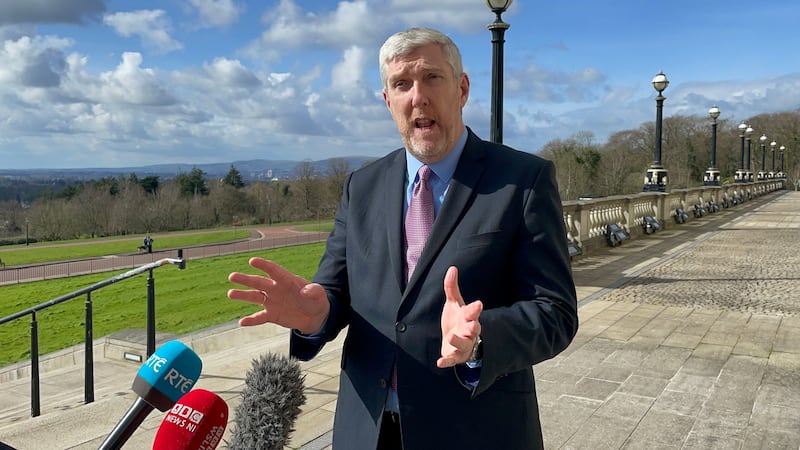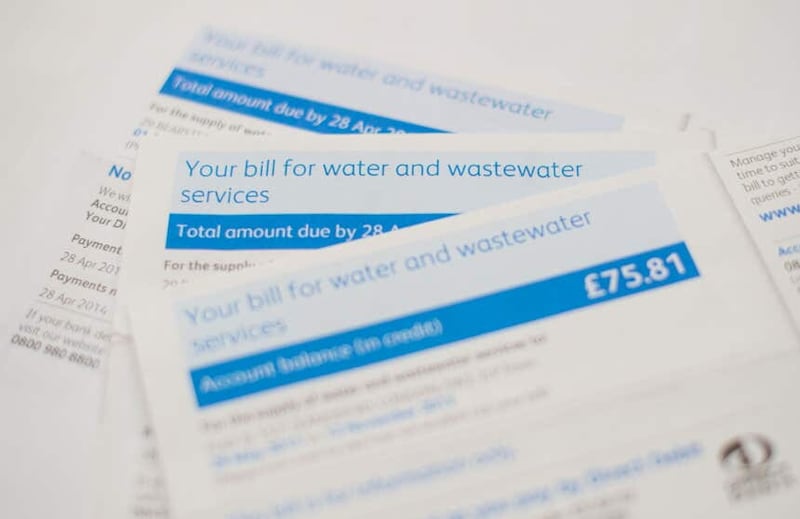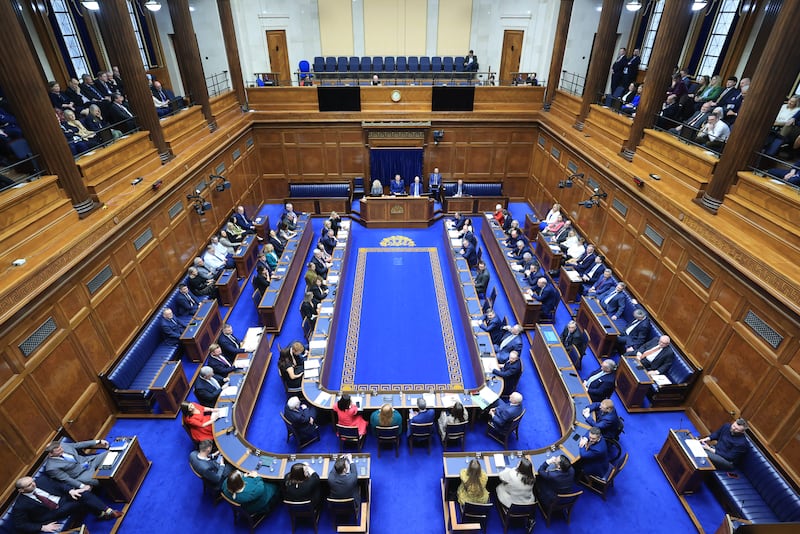There is an ominous parallel between the decline of our water system and our health service. In both cases, Stormont knows action is required but has proved incapable of delivering it.
The comparison is not exact. On health, half a dozen expert reports over the past two decades have made essentially the same recommendation: fewer small general hospitals and more regional specialist centres. This is so obviously the correct way forward that all five main parties have adopted it as policy. They just refuse to support it when it affects their own constituencies, with the honourable exception of Alliance.
Water does not have one obvious answer. Investment in the system could be increased by various means, each with pros and cons. There has also been only one expert report in the past two decades comparable to the many reports on health – the Independent Water Review Panel (IWRP), which published its findings in two parts in 2007 and 2008. It was never adopted as policy: the executive that commissioned it with great fanfare left it sitting on the shelf. But it certainly represented one good answer that would have prevented the crisis NI Water faces today.
The IWRP was established within months of Stormont’s restoration after the St Andrews Agreement. The executive halted direct rule plans for water charging and ruled out the privatisation that had clearly been on the cards. It asked Queen’s University professor Paddy Hillyard to chair a review of alternative arrangements, reporting to then Sinn Féin infrastructure minister Conor Murphy. Part one would examine the cost of water and how it should be funded. Part two would look at management structures for NI Water.
A common objection to water charging heard during direct rule was that households were already paying through the rates.

Sinn Féin’s response was to promise people would not “pay twice”. However, like most parties, it accepted water needed more funding and the public would have to pay for it one way or another.
So a key term of reference for the IWRP was to find out how much people were already paying for water and to take this as its starting point.
Although the legal link between rates and water was broken in 1998, rates had not been reduced. The review found this meant the average household was still paying £160 a year towards water and needed to pay £120 more, a total of £280.
Average water bills had been predicted to be £350 with no rates discount, so this was a significant saving.
Each household’s contribution for water should be itemised separately on rates bills, marked ‘NI Water’. Contributions would be based on property values, as with the rates, with the same help for people on low incomes. There would be no metering.

Part two of the review recommended NI Water transition to a “Customers’ Company” from 2013.
This is a non-profit structure somewhere between public ownership and mutualisation, the building society-type model used by Welsh Water.
The IWRP believed it would make NI Water just private enough to borrow privately for investment, without having to issue separate water bills to prove to lenders it could pay them back.

On Monday, the assembly debated a UUP motion to consider mutualising NI Water. Sinn Féin infrastructure minister John O’Dowd rejected this as still requiring separate water bills, as in Wales. Nobody in the 90-minute debate mentioned that the IWRP had offered a compromise solution to this 16 years ago. In fact, nobody mentioned the IWRP at all.
The IWRP report was rejected because merely itemising water on rates bills was still felt by the executive to look too much like a separate charge. The review’s terms of reference had pointed at itemisation, yet parties baulked at the logical conclusion.

In 2010, a freak cold spell caused water supplies to fail, exposing the fragility of the system. Prof Hillyard asked why his report was still gathering dust but this early warning of chronic under-investment only caused the executive to bury its head deeper in the sand, where it has remained ever since.
Last month, an Audit Office report noted a 2019 internal review of the same issues had been ignored and urged NI Water and the Department for Infrastructure to perform another, “led by suitably qualified experts”.
Stormont needs a more fundamental review of why parties almost guaranteed to be in office still dither for decades over essential decisions
There would be little point. Stormont needs a more fundamental review of why parties almost guaranteed to be in office still dither for decades over essential decisions.
What on earth are they afraid of?




